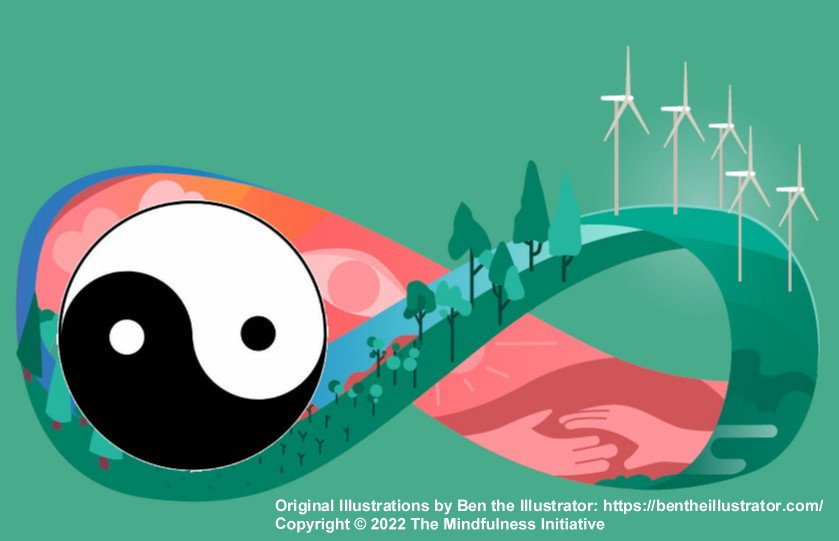Rediscovering Balance - Wellbeing Economy
The discourse around a Wellbeing Economy recognises a culture dominated by the acquisition of things over personal contentment and happiness that is not only unsustainable but hugely damaging (Bristow et al 2022, Bristow et al 2024).
Not surprising perhaps that in some societies 'taking back control' has been a powerful but empty mantra that has resonated with a wider public discontentment but has resulted in the further amplification of mistrust.
Yet there may not be a need to ‘take’ anything back. Let us consider simply rediscovering what we all inherently already have, rediscovering our inner neurological biological self.
The concepts discussed here are by no means new or revolutionary. There is a wealth of information that recognises ancient indigenous practices incorporated in what today we call 'mindfulness' that can support a Wellbeing Economy (Bristow et al 2022, Bristow et al 2024, Ticehurst 2024). A way to counter trauma inducing cultural that result in so much anger and discontent. To break cycles that keep people stuck in a neurological fight (anger), flight (fear) or freeze (numbness) response mode of existence.
While the positive aspects of practicing mindfulness can break the cycle of harmful negative responses it is recognised the approach may not be accessible (Bristow et al 2022, Ticehurst 2024) or appealing as a destructive and addictive alternative like 'retail therapy'.
Yet a more accessible form of mindfulness that enables a wider section of our communities to rediscover a balanced, calmer way of being is possible. Simply relearning to pay attention to the internal sensations and feelings of our muscles, tendons or facia as we move can have a perception changing effect.
This approach has to be more than a mental mindful activity, for as Watts (1957, p.108-9) cites in a poem attributed to Seng-ts'an:
‘If you work on your mind with your mind,
How can you avoid an immense confusion?'
Here there is no need to take back control from anybody, it can be just a simply matter of using mind - body activity in order to rediscover something that is always within us but we no longer notice.
The methods used to do this are taken from the ancient Chinese art of Qigong and Tai Chi Chuan. These somatic practices developed as Embodied Tai Chi (Hunt 2024) can equally be incorporated within a wider spectrum of existing physical activity from walking to cross training in sport, martial arts, dance and the creative arts. This enables opportunities to incorporate mindful perspective changing practice into a wider spectrum of existing community activities.
Once experienced it is possible to practice and develop greater personal physical and emotional balance. An important by-product of this balanced even contented way of being can be an unexpected sensitivity towards other people and our natural environment. We can find compassion not just for our self but towards others and our natural World.
It is suggested that Embodied Tai Chi practices can make an important contribution towards supporting the cultural shift to a Wellbeing Economy through personal change that enhances our relationship with other beings and our natural environment.
References
Bristow J., Bell R., Wamsler C. (2022) Reconnection: Meeting the Climate Crisis Inside Out. Research and policy report.’ The Mindfulness Initiative and LUCSUS. www.themindfulnessinitiative.org/reconnection, accessed 19th October 2024, pdf;
Bristow, J. Bell, R. Wamsler, C. Björkman, T. Tickell, P. Kim, J. Scharmer, O. (2024). The System Within: addressing the inner dimensions of sustainability and systems change; The Club of Rome, Earth4All: deep-dive paper 17, https://www.themindfulnessinitiative.org/reconnection ,accessed 19th October 2024, pdf;
Hunt David (2024) Embodied Tai Chi; https://embodiedtaichi.org/ , accessed 19th October 2024
Ticehurst Simon (2024) Back to Earth; Published on July 16, 2024, Movements and Advocacy Lead, Wellbeing Economy Alliance, https://weall.org/back-to-earth
Watts Alan W (1957) The Way of Zen; Penguin Books, Harmondsworth

